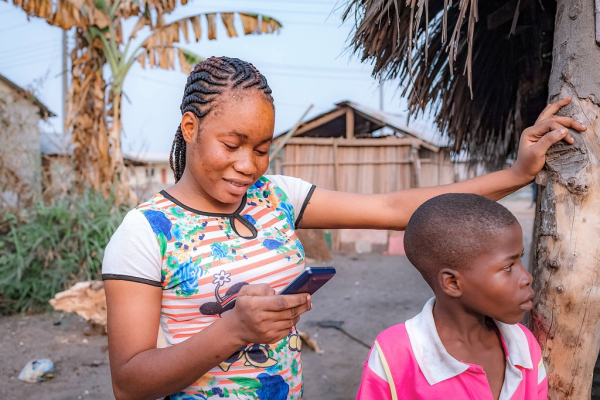In Africa, the lack of financial resources is not the only factor that affects access to education. The social environment can sometimes also be an obstacle. In those conditions, the well-directed use of ICT tools can address the issue.
ICT tools can be beneficial in many ways for children’s education, according to the World Bank. The international institution makes this assumption based on the experiment it facilitated, between 2018 and 2020, in the States of Kano and Jigawa, in Northwest Nigeria. The experiment involved 9393 rural households whose children aged 6 to 9 and their parents were subjected to two digital learning approaches. The approaches led to a 42% drop in the nonenrolment rate.
The baseline sample selected by the World Bank included 2,335 households in 32 communities that received only aspirational videos for parents to change their mindset and wish for better for their children. Also, 2,345 households in 32 communities received aspirational videos, and 40% of them also received a smartphone with educational content. 4,713 households in 64 communities served as a control group.
The results, documented in the “Improving Enrollment and Learning through Videos and Mobiles Experimental Evidence from Northern Nigeria” policy research paper demonstrate that aspirational videos alone reduced girls' aspirations to marry at the ages of 15 to 18. The videos had the greatest impact on the girls' parents. In households that received the aspirational videos and the smartphone, children's literacy and numeracy skills improved by 0.46 points and 0.63 points, respectively, compared to the control group.
According to the World Bank, no evidence of heterogeneous effects by gender was found overall, "highlighting the potential of edtech to also effectively reach girls in conservative settings, where girls' seclusion or a strong bias towards boys’ education may prevent girls from accessing formal schooling."
"Our heterogeneous analysis by gender shows that the interventions worked for both girls and boys and that the magnitude of treatment effects across gender were generally similar for the main outcomes (school enrollment, and literacy/numeracy skills),” the research paper informs.
Social pressure, a barrier to education
The research reveals that since smartphones are often used by multiple household members in low-resource settings, the resources provided for the experiment improved the literacy and numeracy skills of older, non-targeted siblings, reduced early parenthood among adolescents living in targeted households, and reduced early labor market entry.
For the World Bank, this is bonanza. In its 2019 Reading and Access Research Activity report, the institution revealed that northern Nigeria was significantly behind the national average in terms of education. Less than 3 percent of second graders in public elementary schools could read Hausa text with 80 percent or better comprehension. In the northwest, only 29 percent of women aged 15-49 and 59 percent of men were literate. Only 40 percent of 30-34-year-olds were educated in the northeast and northwest zones, compared to 90 percent in the southeast and southwest regions of the country.
The study believes the situation in the northwest is due to the strong adherence of the population to traditional norms. The formal legal institution of Sharia law, which applies in most northern states and covers social, civil, and criminal matters, has reinforced social norms that encourage early marriage among adolescents and thus early pregnancy. All of this represents additional barriers to education. The emergence of the militant terrorist group Boko Haram, which translates to: "Western education is forbidden," has created an additional barrier to school enrollment and attendance in the north of the country.
According to the World Values Survey 2017-2021 cited by the World Bank, 42 percent of respondents in Nigeria believe that college is more important for a boy than a girl and 41 percent believe that preschoolers suffer when mothers are employed. These norms contrast with those observed in other countries such as Kenya, where the proportions of the population holding these views are 18% and 23% respectively.



















